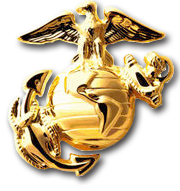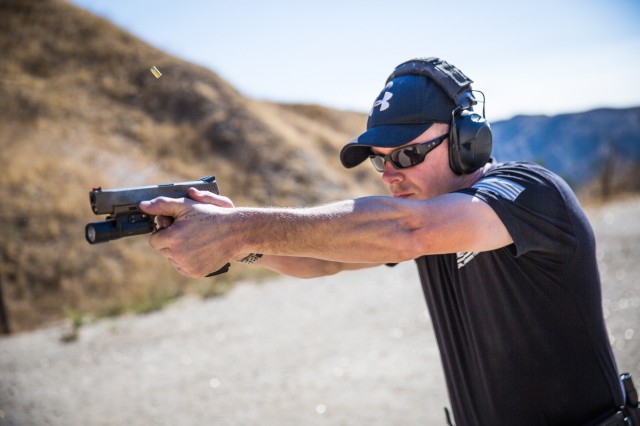- This email address is being protected from spambots. You need JavaScript enabled to view it.
THE IMPORTANCE OF MUSCLE MEMORY IN FIREARMS TRAINING
You have seen the byproduct of it many times when watching sporting events, attending concerts and even at construction sites. Any professional athlete, musician or craftsman can attest to the neuromuscular phenomenon known as “muscle memory”. Muscle memory can be thought of as training your body to react a certain way through gross repetition.
As it applies to firearms, muscle memory can instill efficiency and speed into the shooter’s technique or it can create terrible habits that become almost impossible to break. New shooters with very little firearms experience are often the easiest to train. They have no bad habits to unlearn as they are starting off with a clean slate. The recruit often looks down to see where his/her hand needs to go, then ponders how to disengage the retention device. The recruit then timidly draws his pistol, making sure that every step of the draw is performed as instructed. However, by the end of the training, that same recruit is able to quickly get his/her gun out of the holster and on target in one smooth efficient motion. This efficiency only came about because of the thousands of repetitions and many hours of practice.
As a full time firearms instructor and field training officer, I have been fortunate in having had first hand experience with individuals who believed that simply ‘knowing’ what to do was a substitute for hard work and proper training. People can become complacent and if training is not an immediate priority, there are some who may not put in the effort necessary to be as effective as possible. As it applies to clearing a malfunction, knowing that a ‘failure to fire’ is overcome by a simple tap-roll-rack, does not necessarily mean that you will automatically perform this action when it is needed most. I have witnessed many out of practice shooters who had the knowledge to clear said malfunction, completely fail to do so during the added pressure of timed fire on a qualification course or at the range.
During a time of stress, the unconditioned body does not know how to properly react to something out of the ordinary. This often results in an unfavorable reaction, or no reaction at all, if the neurological pathways have not been established as within an untrained or poorly trained shooter.
I have also seen many well trained and hard working shooters, experience the same malfunction, clear it, and get back on target without missing a beat. Aside from the obvious difference in mindset, the biggest difference in how the malfunction was handled comes down to the amount of time and effort that was put into knowing what to do when this malfunction occurs. Training to properly react to something is just one positive aspect of muscle memory training. When we train our bodies to move a certain way, it clears our mind so we can focus on more important tasks at hand.
Armed combat should be no different. If, during a gun fight, you are thinking about smoothly pressing your trigger straight to the rear without any lateral movement, then you probably have not put in enough trigger time to be efficient when it counts the most. The neurological pathway of having a smooth trigger press should have been formed deep in your brain long ago in the safety of a sterile training environment. Instead of thinking about your trigger press, you should be focusing on moving to your next point of cover or when to perform your next reload.
Conversely, while muscle memory training can make you a faster, more efficient shooter, learning incorrect technique through repetitive training can do more harm than good. It is extremely important to train correctly to avoid engraining bad habits into your shooting. Doing something wrong continuously will not make it right. It will just make it more difficult to unlearn. To avoid inefficiencies, train with reputable and experienced instructors that have the student’s best interests in mind. A sharp eye can detect training deficiencies and prevent any future problems. Ultimately, the choice to be skilled with a firearm comes down to how much hard work and effort you are willing to put in.
Sammy has been a member of the Los Angeles Police Department for the last 20. After nearly two decades of field experience working various assignments, he took up a position with the Firearms Training Unit. Sammy serves as a Primary Firearms Instructor teaching both recruits and in-service personnel. Sammy is a certified LAPD pistol and shotgun instructor and a competitive pistol shooter. In addition to his firearms experience, Sammy is a LAPD Arrest and Control Instructor with with several black belt rankings to his credit. After retiring as an amateur fighter, he received his instructor certificate in the art of Muay Thai through Pongsan Ekyotin.
Blog - Categories
FREE Target Downloads
-
pdf Time Flies Popular
-
-
pdf P.U.P. Drill Target Popular
-
pdf DOT CHALLANGE Target Popular
-
pdf SE Headshot Target Popular
Upcoming Courses
Veteran Owned Company

Sierra Element is a Veteran Owned Company.


